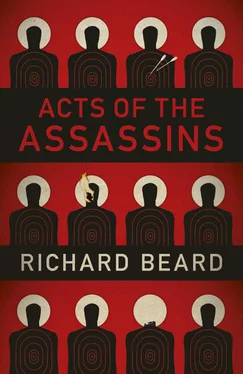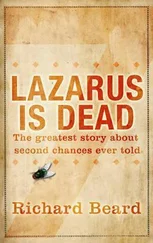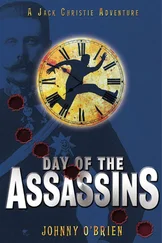Judas has spent a night downstairs in the Antonia. He’s dirty and hungry. But also, Gallio concedes, the chicken does have a double meaning. Good cop. Judas is the asset, and the asset’s cover is blown. His eleven former companions, his ex-friends, despise him. He’ll appreciate every kindness.
‘Judas!’ Val stabs the stiff end of the card into his shoulder. Bad cop, an act but she’s a natural. ‘He knew what was going to happen and he planned every move, didn’t he? You might have warned us, said a little something beforehand.’
‘I’m hungry,’ Judas says.
They wait. A rotisserie chicken in a white and silver bag, an underpaid local recruit: he carries the bag past the security barriers, into the lift, out of the lift, through the manned gate to the reinforced door of the interview room. Keypad, authorised personnel only. Gallio goes to open the door, takes the bag that smells of grease and freedom. He says thanks, in good cop character, swings the heavy door shut, hands the hot roast chicken to Judas.
Cassius Gallio has a heart of gold, but Judas peers cautiously inside. A cloud of chicken steam billows to the ceiling. The chicken is not a trap, Judas, or a trick. Everything is as it seems.
Judas pulls out the browned carcass, snaps it open and bites out the liver. Hungry. As he chews, the meat gives him strength. He breaks off a drumstick and points, jelly glistening on the hanging skin.
‘I kept you out of it. They trusted me.’
Judas is an innocent, Judas is a baby. Obviously they didn’t trust him, or he’d know how they’d subverted a public execution. If he had their trust he could explain why the disciples, his former friends, were spreading misinformation about the dead man being alive. Judas had yet to volunteer a satisfactory answer as to why they were doing that.
‘They played you.’ Valeria keeps her amber eyes fixed on Judas, skims the laminated card onto the table, where it slides across the metal and drops to the floor. ‘Played us, too. You’re nervous, Judas. Why is that? What reason do you have for being so nervous?’
Valeria is a people person, who enjoys the intimate questions. Who are you? What are you afraid of? Will you ever leave your wife?
‘Your leader is dead, Judas,’ she says. ‘We watched him die, and it wasn’t pleasant, but he can’t hurt you now. The others, however, have worked you out. They recognised the signal you gave to trigger the arrest.’
‘We should have thought up something more subtle,’ Gallio adds. ‘Sorry, our mistake.’
‘They’ll be wondering where you are,’ Valeria builds the fear. ‘You’re seriously outnumbered.’
‘Eleven against one.’
‘Honestly,’ Judas says. He holds the chicken carcass in both hands. ‘I never heard any discussions about stealing the body. From the start of this you promised to protect me. It was the first thing you said.’
He rips at the chicken breast with his teeth, chews and swallows, bites, chews, all body, no brain. He reduces life to the basic function of taking on fuel, hoping to block out the last few days, and the feeling that life and death have stopped following the basic expectations.
‘Judas. Look at me.’
On the edge of the table, next to Valeria, Gallio is as close to his former inside man as can be. He leans forward and brings his blue eyes to bear. Sweat beads on the bridge of Judas’s nose. ‘Put down the bird, Judas.’
Gallio lays his wrists on the man’s shoulders, his metal watch-band hard against Judas’s collarbone, and he leans, making Judas heavier, a burden on his shoulders weighing him down. ‘Stop chewing, Judas. Good. Good boy. Mouth closed. Now look at me, Judas, look into my eyes. We want the truth about what happened this weekend, and don’t be frightened. We’re the good guys. We won’t let them fuck you up.’
Gallio himself takes plainclothes shifts at the hotel. He sits at the bar with his laptop and types out notes for a provisional report. Low priority, no cause for alarm. What they have here is an unusual but annoying theft. That is what this is. What it can’t possibly be, and what he refuses to contemplate, is died, risen, coming again.
Unfortunately, being unreasonable is not against the law. The disciples can’t be arrested for their delusions, but they need to know they’re suspects under constant surveillance. Gallio wears the same jacket every day, so they’ll notice him, has his shoes shined in the lobby when they come down to breakfast. He makes a show of staring, hardly blinking, at eleven out-of-towners with plenty of hair and delicate fingers. They do not dress well, favouring lighter colours in the range between beige and cream. Cult uniformity, which is why Judas had to single out their leader: they all look alike.
The disciples are agitated, glance left and right, know that Jerusalem is full of spies. ‘Agitated,’ Gallio writes in his notebook, next to the intricate lines of a diamond formation. He blocks out the upper triangle in the capital A: years of training for this. He is supposed to make connections, work out how conspiracies against the civilised world fit together, but in this case he simply doesn’t know.
Over the following days he chases every lead. In one tip-off the dead man is supposed to have appeared to his mother, alive and disguised as a gardener. Gallio rounds up the city’s registered gardeners. They vow to make a formal complaint to the Prefect, which is fine, but none of them remembers speaking to a distressed middle-aged lady on the day in question at or near the crime scene.
So Gallio brings in the mother, because close family members are always open to suspicion. Instead of a lawyer she insists on coming accompanied by one of the disciples, John. John recommends she exercise her right to remain silent.
‘Have you seen your son since the day of the execution?’
She exercises her right, but John is ready to fill the gap. He’s a young man with barely enough beard to look the part, and thick glasses he pushes up his nose to punctuate the nonsense he likes to spout. According to John a man died, was in a tomb for three days, and then on the Sunday he came back to life and walked away. A god is involved.
‘That figures.’
‘He came back from the dead,’ John says.
‘Oh, fuck off.’
But Cassius Gallio doesn’t have the evidence to prove John wrong. He lets them go, and in the fortress Gallio bans all discussion of resurrection as a potential line of enquiry. As an occupying force they have arguably imported some questionable laws, but there’s nothing debatable about laws of nature. The Complex Casework Unit will expect a rational explanation. Anything else is going to sound, coming from Cassius Gallio, like an excuse. A terrible excuse, especially from him, after the embarrassment of what happened with Lazarus.
He still doesn’t understand how they did that. Lazarus died from multiple diseases. Cassius Gallio himself witnessed the wreck of the man in his final hours, and then the burial, but four days later Lazarus was alive again and dazed by sunshine in front of his tomb. Gallio couldn’t explain the mechanics, the trick, and when he failed to come up with answers they put him on a caution. Complex Casework was taking an interest. He couldn’t afford to fail again.
The Jewish leadership also lack patience for the gimmicks of Jesus. Without providing evidence they spin the disciples as thieves who’d steal a body from a tomb. Maybe so, but the disciples give nothing away, supply no reasonable cause for arrest.
Gallio follows them, and on the steps of the Temple they tout an organised line, devoting themselves to a falsehood about an executed terrorist who is alive, healthy and a surprise visitor at their city-centre hotel. Delusion, Gallio reminds himself, is not a criminal offence. Their dead leader appears behind closed doors, they say, of course he does, but comings and goings are easy to check: no one fitting the description of Jesus enters or leaves the hotel within the specified time frames.
Читать дальше












